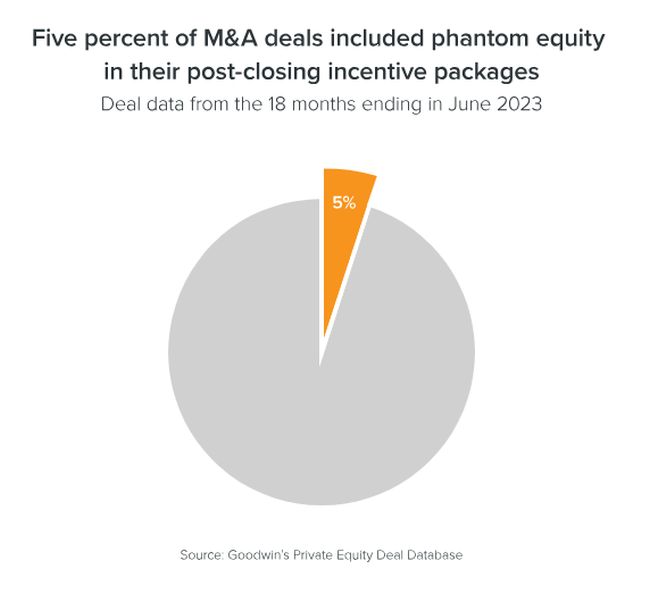Phantom equity is a form of employee compensation that confers benefits linked to the value of a company's shares without actually bestowing any ownership of shares on the employee. It is called "phantom" equity because it mimics the economic benefits of actual stock ownership.
About 5% of our deals include phantom equity in the post-closing incentive equity pool available for management, according to the Goodwin's Private Equity Deal Database.

As a recent court decision shows, it is important for deal makers to ensure they are clear about how they define terms such as phantom equity in their merger agreements, because misunderstandings can cause costly disagreements and can even scuttle deals.
The central issue in the case (HControl Holdings LLC et al. v. Antin Infrastructure Partners) was whether the phantom stock held by a former employee of the seller should be classified as an "equity security" under the terms of the merger agreement with the buyer. The seller argued that it should not, because the phantom stock did not confer dividends or voting rights as actual shares do.
However, the court sided with the buyer, deciding that the phantom stock was indeed an equity security due to its economic similarity to actual shares, even though it was not technically a share of stock. This ruling indicated a breach of the capitalization representations in the merger agreement, which allowed the buyer to terminate the merger agreement.
The case demonstrates the complications that can arise when definitions are not explicitly agreed upon. It also underscores the importance of due diligence in identifying and understanding all relevant compensatory arrangements, including phantom equity and other forms of deferred compensation, when negotiating transactions.
For more details about the case, see our alert "Phantom Equity to the Rescue: A Summary of HControl Holdings LLC et al. v. Antin Infrastructure Partners."
The authors would like to thank Michelle Kondratiev for her contribution to this insight.
The content of this article is intended to provide a general guide to the subject matter. Specialist advice should be sought about your specific circumstances.




